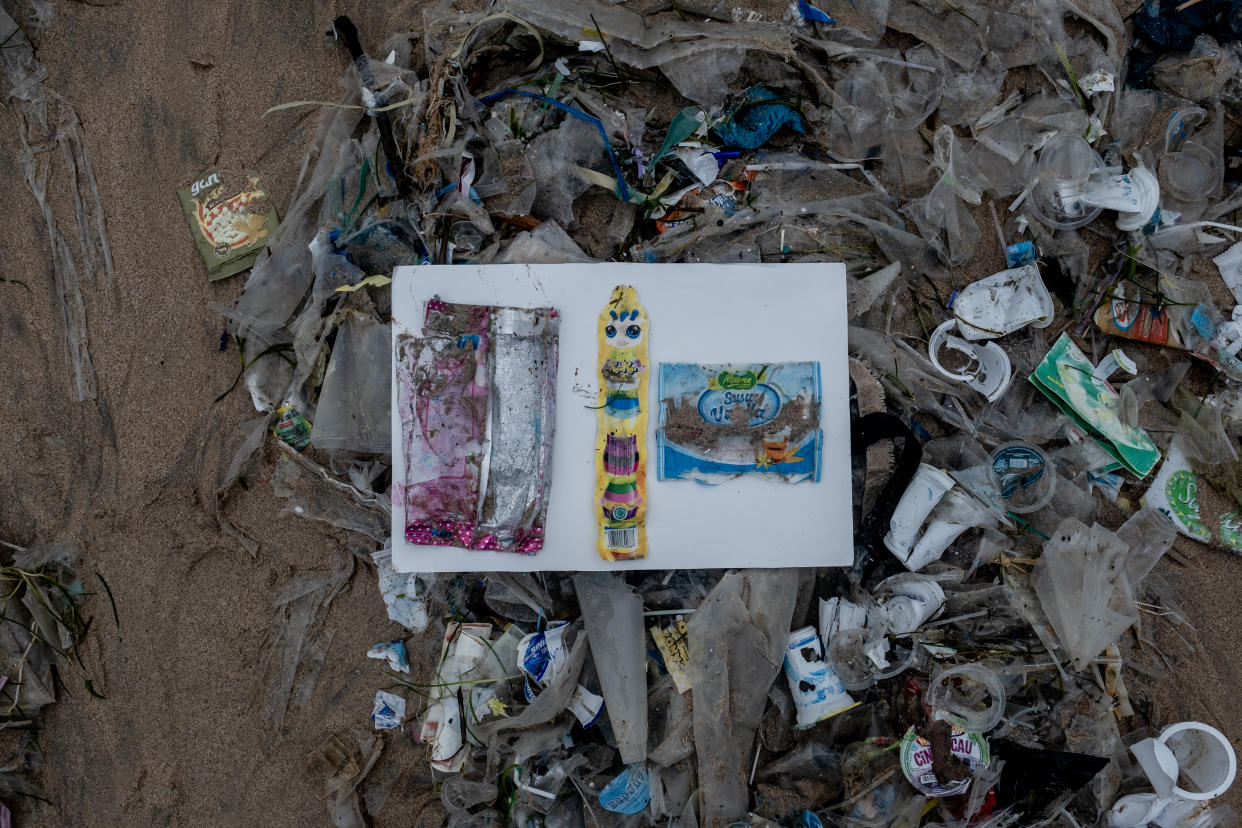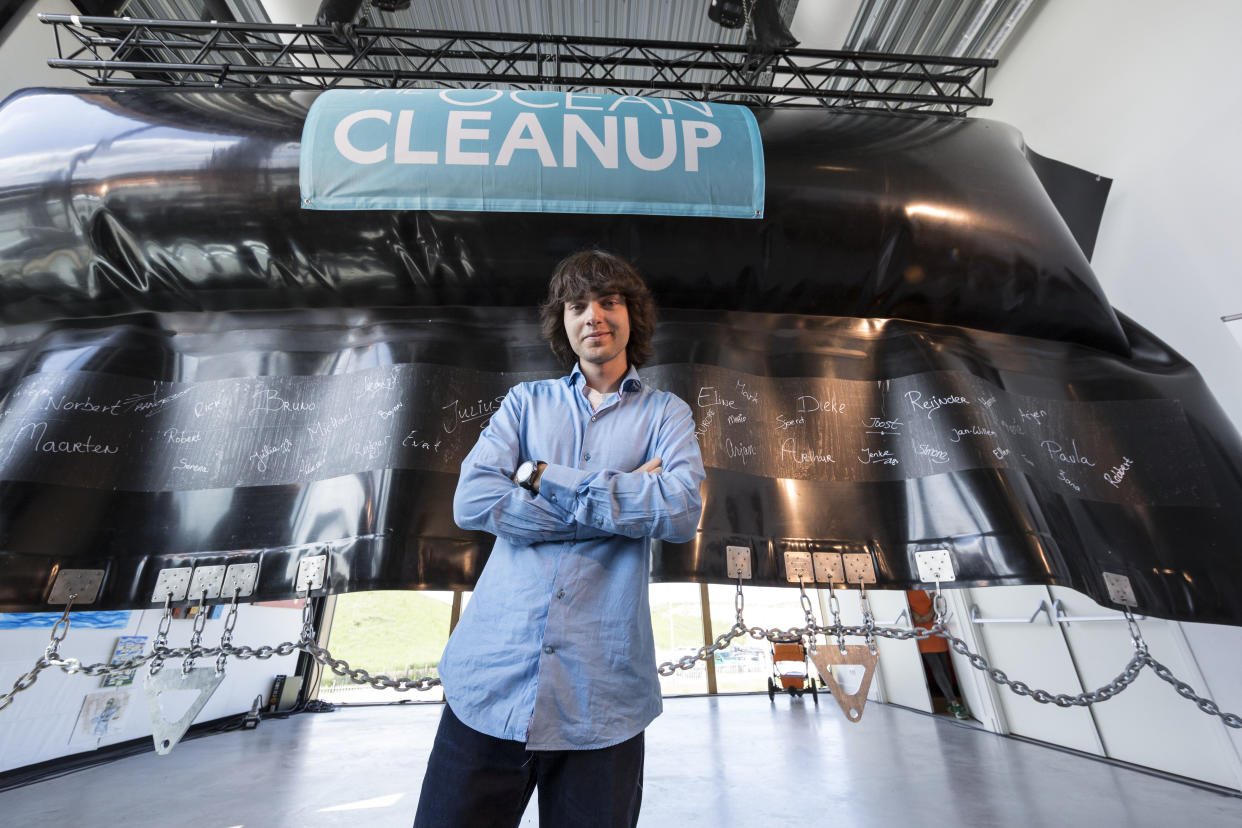Ocean Cleanup removes 100,000kg of plastic from gigantic pile of rubbish in Pacific
Watch: 100,000kg of plastic removed from gigantic pile of rubbish in Pacific Ocean
This is the moment an environmental group removed its 100,000 kg of plastic from the Pacific Ocean.
The video showed The Ocean Cleanup organisation lifting a seemingly endless amount of plastic on to a ship on Monday.
It later announced it had passed a major landmark by removing 108,526 kg of plastic from the Great Pacific Garbage Patch (GPGP), the world’s largest swirling mass of marine debris spanning 1.6 million square kilometres in the North Pacific – between California and Hawaii.
A man on the ship was heard saying: “I think we’ve been working for two hours now and it’s going very fast and everyone just goes all in.
“This is so nice to see. This is the spirit. The Ocean Cleanup spirit.”
Read more: India bans on single-use plastic to combat pollution

The Ocean Cleanup was founded by Dutch inventor Boyan Slat in 2016 when he was 18.
Since August 2021, the environmental group has used System 002 (or “Jenny”) to clear 101,353 kg of plastic over 45 extractions in the GPGP, sweeping an area of ocean of over 3,000 square kilometres– comparable to the size of Luxembourg or Rhode Island.
This amount was added to the previous 7,173 kg of plastic captured by The Ocean Cleanup’s prototype systems to make a total of 108,526 kg of plastic removed from the area.
The group said this is more than the combined weight of two and a half Boeing 737-800s, or the dry weight of a space shuttle.
With the Jenny system, two fuel-powered Maersk vessels tow the 520-metre wide horseshoe-shaped catchment system across the ocean surface.
An underwater camera helps make sure marine life does not become entangled.
Read more: Can everdrop scale its plastic-bottle-free cleaning products, as well as build a global brand?

The Ocean Cleanup hopes to eventually remove all of the plastic waste from GPGP.
It said: “According to our 2018 study in which we mapped the patch, the total amount of accumulated plastic is 79,000,000 kg, or 100,000,000 kg if we include the Outer GPGP.
“Thus, if we repeat this 100,000 kg haul 1,000 times – the Great Pacific Garbage Patch will be gone.”
The group is now planning to move from the “experimental” System 002 to the System 03 machine, which is expected to capture plastic at a rate potentially 10 times higher through a combination of increased size, improved efficiency, and uptime.
The Ocean Cleanup is funded by cash donations and corporations, including Coca-Cola, which is ranked as one of the world's largest plastic polluters by environmental groups.
If the flow of plastic into the ocean continues unabated, the seas will contain more plastic mass than fish by 2050, according to the World Economic Forum.


